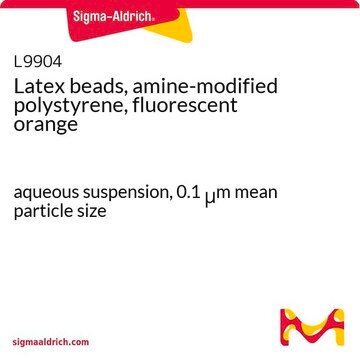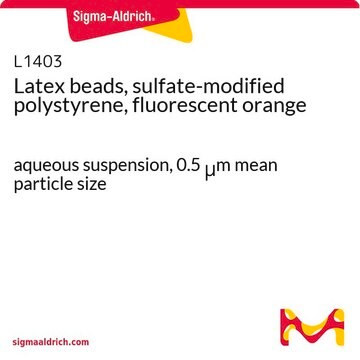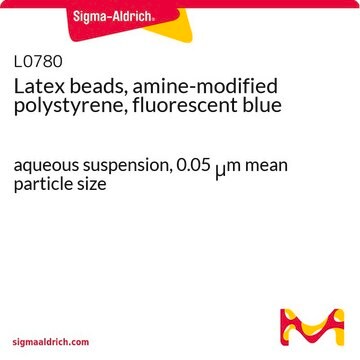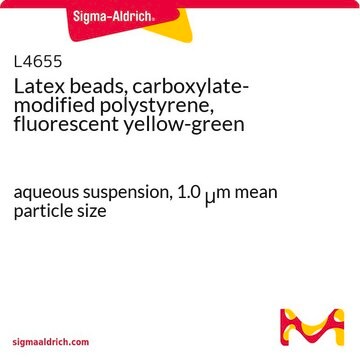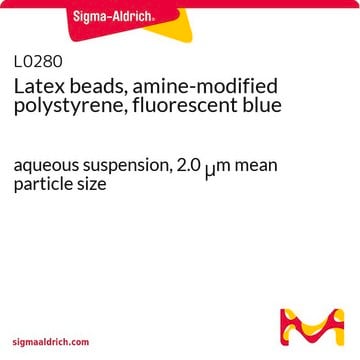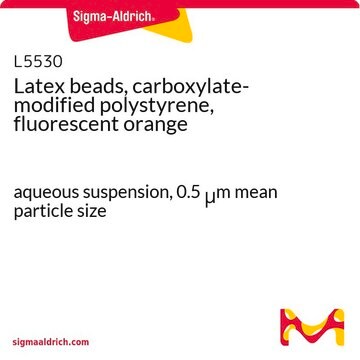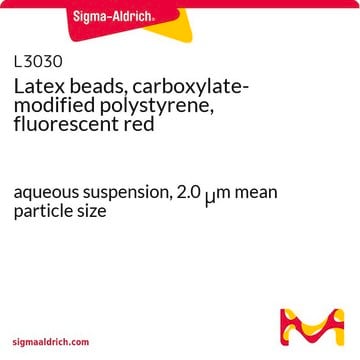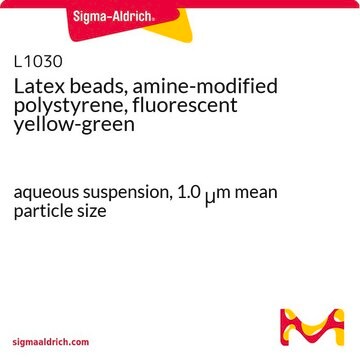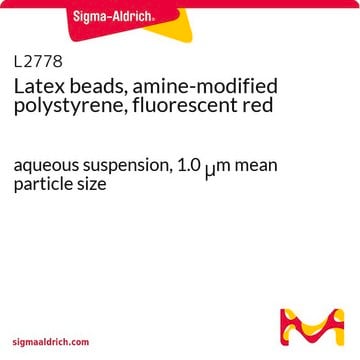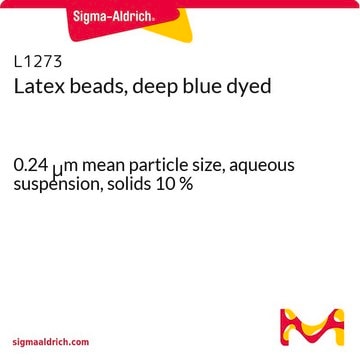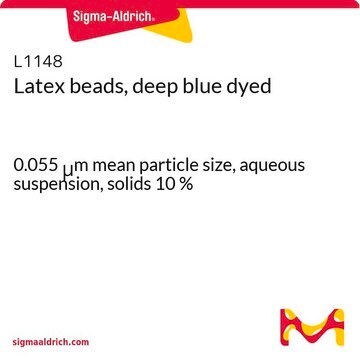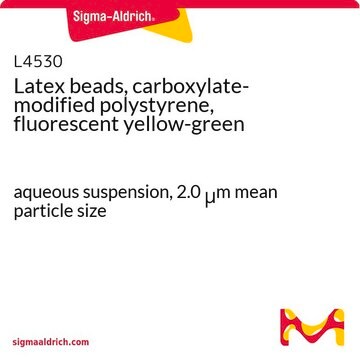L1528
Latex beads, sulfate-modified polystyrene, fluorescent orange
aqueous suspension, 0.1 μm mean particle size
Sign Into View Organizational & Contract Pricing
All Photos(1)
About This Item
Recommended Products
form
aqueous suspension
composition
Solids, 2.5%
technique(s)
cell based assay: suitable
mean particle size
0.1 μm
fluorescence
λex ~520 nm; λem ~540 nm
application(s)
cell analysis
Looking for similar products? Visit Product Comparison Guide
Application
Sulfate-modified polystyrene latex beads have been used to develop an electrochemical nitrite nanosensor as well as in voltammetric studies. Sulfate-modified polystyrene latex beads have been used to explain the partitioning behavior for certain species of bacteria.
Storage Class Code
10 - Combustible liquids
WGK
WGK 2
Flash Point(F)
Not applicable
Flash Point(C)
Not applicable
Choose from one of the most recent versions:
Already Own This Product?
Find documentation for the products that you have recently purchased in the Document Library.
Customers Also Viewed
Effect of ionic strength and ionic species on partitioning behavior of hydrophobic and hydrophilic polystyrene latex beads in aqueous two-phase polymer systems
Tripp, B.C., et al.
Colloids and Surfaces, B: Biointerfaces, 6, 151-164 (1996)
Hong Sun et al.
Biophysical chemistry, 110(3), 297-308 (2004-07-02)
A novel hemoglobin (Hb)-coated polystyrene (PS) latex bead film was deposited on pyrolytic graphite (PG) electrode surface. In the first step, positively charged Hb molecules in pH 5.0 buffers were adsorbed on the surface of negatively charged, 500 nm diameter
Delfine Cheng et al.
Micron (Oxford, England : 1993), 132, 102851-102851 (2020-02-25)
Kupffer cells are liver-resident macrophages that play an important role in mediating immune-related functions in mammals and humans. They are well-known for their capacity to phagocytose large amounts of waste complexes, cell debris, microbial particles and even malignant cells. Location
Electrochemical nitrite nanosensor developed with amine- and sulphate-functionalised polystyrene latex beads self-assembled on polyaniline
Muchindu, M., et al.
Electrochimica Acta, 55, 4274-4280 (2010)
Our team of scientists has experience in all areas of research including Life Science, Material Science, Chemical Synthesis, Chromatography, Analytical and many others.
Contact Technical Service